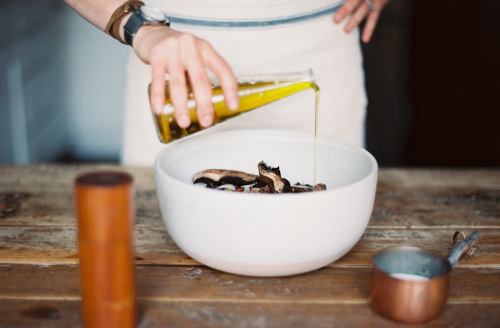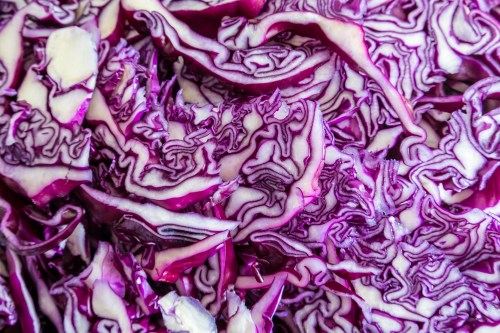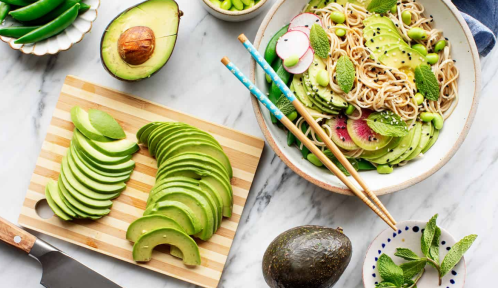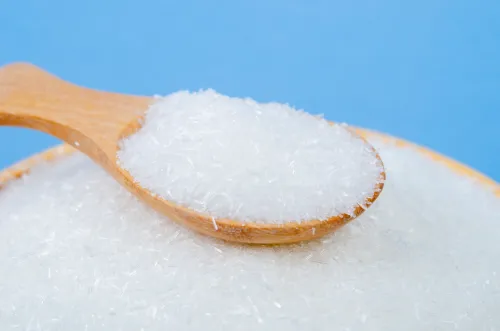Our editors independently select these products. Making a purchase through our links may earn Well+Good a commission
In your early cooking days, vegetable and olive oil might have been the lone oil options you knew existed. But take a stroll through the grocery store and you’ll see that there’s an overwhelming amount of options out there. From ones you’ve likely heard your fave healthy foodies declare loyalty to—like avocado and coconut—to others you’re completely confused by (looking at you, walnut and hemp), it’s hard to know not only what’s best to buy, but when and how to use ’em.
After all, it’s not always intuitive, and different oils are best used for different reasons. Some are superstars in high heat cooking, while more delicate oils can elevate recipes with rich flavor. Oils are also a great way to get more healthy, filling fat into your day. But even though there’s no need to fear fat, not all oils deliver the healthy kind. (And even oils that do contain healthy fats can have downsides when they’re not used properly.)
First, it’s important to understand smoke points.
All oils have a smoke point, which literally means the point where the oil will start to smoke and break down. (Any oil can eventually catch on fire if you go too far beyond its smoke point.) And even if you don’t end up with flames in the kitchen, there are other implications.
“When a low smoke point oil begins to smoke, the taste and aroma of the oil will become unpleasant and bitter,” explains Michelle Dudash, R.D.N., chef and author of Clean Eating for Busy Families. “Oil heated past its smoke point will cause the fat to break down, which in turn releases free radicals, which cause oxidative damage to cells in the body.”
On one hand, highly refined oils—such as canola, soybean, corn, sunflower, safflower, and vegetable oils (which generally refers to a blend of different refined oils)—are so ubiquitous in cookbooks because they have high smoke points and neutral flavor profiles, explains Rachel Begun, MS, RDN, nutritionist, chef and co-founder of The Modern Loaf. But even though refined oils generally have higher smoke points, they’re not exactly lauded for their health benefits (the refining process employs some questionable methods and chemicals and strips away antioxidants and nutrients).
While experts have some differing opinions on what they do call a healthy oil (there are upsides and downsides to many, and there’s a seemingly endless number of oils to debate), some choices are better than others.
Here are 8 popular oils among wellness circles that you can use for cooking, drizzling, and everything in between.

Extra-virgin olive oil
Smoke Point: 375°F
“[Extra virgin] olive oil is often the oil of choice and for good reason—it’s made up of 73 percent monounsaturated fatty acids, which are the healthy fats known to help reduce inflammation,” says Begun. (No wonder it’s a staple in the highly anti-inflammatory Mediterranean diet.)
Plus, “extra-virgin olive oil also contains polyphenols, which are good for heart health and disease prevention,” adds Dudash. If you can, look for an olive oil from the first or second “pressing” or centrifuge, she suggests. “The less refined it is, the better it is for you, since it contains more antioxidants,” says Dudash.
While these health benefits are hard to argue with, many people make the mistake of using it for everything. Olive oil has a relatively low smoke point, so it’s not a good choice for the grill or high-heat searing, says Dudash. In the oven, keep it to under 375 degrees.
Avocado oil
Smoke Point: 520°F
Similar to olive oil, “avocado oil contains 10 grams of heart-healthy monounsaturated fats,” says Dudash. Also similar to olive oil, it’s high in oleic acid (an omega-9 fatty acid), which is thought to have anti-inflammatory and immune-boosting properties.
It’s also got an edge over EVOO when it comes to cooking. “You can use avocado oil in high-heat cooking, like searing and sautéing, since it has a high smoke point,” says Dudash. So feel free to use it to roast veggies at high temperatures or use it in grilling recipes. “I also like to use avocado oil in baking since it has a light, mild taste,” she adds.
Virgin coconut oil
Smoke Point: 350°F
Coconut oil is one of the most controversial “healthy oils” out there (a Harvard professor recently referred to coconut oil as “pure poison”—ouch), but not all experts are totally abandoning the coconut oil bandwagon. “Coconut oil is high in saturated fat—however, it’s plant-based so you’re a little better off using coconut oil instead of butter,” says Dudash.
Virgin (or unrefined) coconut oil also has a nice coconut-y flavor, and it’s high in MCTs (medium-chain triglycerides), which your body can use for easy fuel. Since virgin coconut oil has a lower smoke point than refined coconut oil, it’s a good choice for lower-heat cooking. “I like to use it in baking cakes, muffins, and cookies, and making chocolates since it is solid at room temperature,” says Dudash. (And don’t forget about those beauty benefits.)
Sesame seed oil
Smoke Point: 350°F
“Sesame seed oil is rich in polyunsaturated and monounsaturated fats, which are both good for heart health,” says Dudash. While refined sesame oil has a higher smoke point, dark sesame oil (or toasted sesame oil) is better for flavor than for cooking. “Use regular sesame oil in low-heat cooking and dark sesame oil for finishing dishes at the end of cooking or in salad dressings,” says Dudash. (It brings great flavor to Asian dishes in particular.)
Hemp seed oil
Smoke point: 330°F
Hemp seed oil is source of iron, magnesium, and vitamin E, and hemp seeds also have a good ratio of omega-3 fatty acids to omega-6 fatty acids (which is good news, since consuming too much omega-6 and not enough omega-3 can lead to inflammation).
Culinary-wise, “hempseed oil provides a delicious nutty flavor to the foods it flavors, making it a great finishing and dressing oil when you want that touch of nuttiness,” says Begun. Due to its low smoke point, hempseed oil shouldn’t really be heated at all.
Flaxseed oil
Smoke point: 225°F
Flaxseed oil is similar to hemp seed oil in a few ways. For one, it’s a great source of omega-3 fatty acids (which is good for heart health and can help fight inflammation). It also has a similar flavor (and a very low smoke point, so again, it shouldn’t be used for cooking).
“It imparts a rich nutty flavor to the foods it dresses—it’s great in vinaigrettes and as a finishing oil to provide it’s flavor and texture,” says Begun. You can also add it to smoothies for a dose of healthy fat. (Be warned—use too much and you might notice a fishy flavor, says Begun.)
Walnut oil
Smoke point: 320°F
Considering walnuts’ superfood status, it’s no wonder walnut oil has similar health benefits—it’s high in those anti-inflammatory, heart-healthy omega-3 fatty acids. “Just like the nut, walnut oil offers an earthy, rich flavor to foods,” says Begun. “It is best used in uncooked foods as a finishing oil or dressing where you want the oil to impart that rich flavor.”
Pumpkin seed oil
Smoke point: 320°F
Pumpkin seed oil is one of the trendiest oils around, thanks to its culinary cred and health benefits. It contains vitamin A, vitmain E, zinc, and omega-3, and omega-6 fatty acids, as well as antioxidants (and it can be just as good for your skin as it is your body).
“I love the versatility of pumpkin oil. It’s an equally great finishing oil for both savory and sweet dishes—think drizzled over pureed butternut squash soup or vanilla ice cream,” says Begun. “Plus, its dark color adds a nice visual contrast to recipes, if that’s what you are going for.”
If you’re in need of some other handy healthy guides, check out this one on alternative flour and this one on alternative milks.
Sign Up for Our Daily Newsletter
Get all the latest in wellness, trends, food, fitness, beauty, and more delivered right to your inbox.
Got it, you've been added to our email list.











